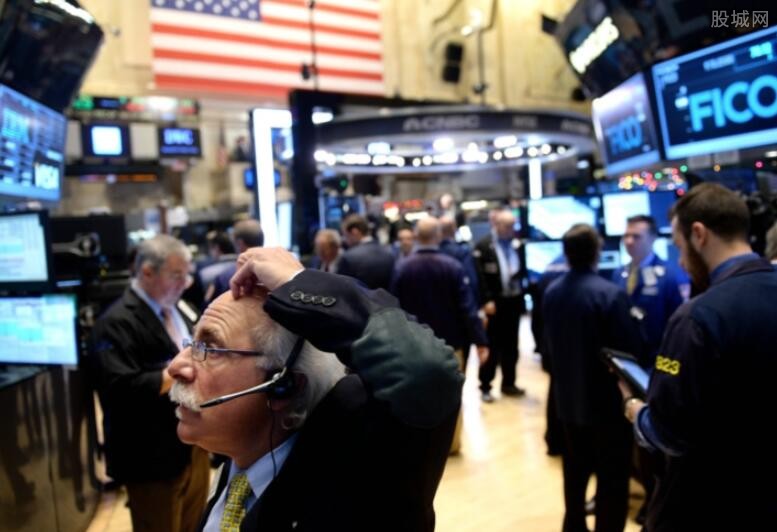
The New York Times reports, "For all of China's efforts to become a global force in high technology rivaling the United States, it has mostly failed to produce top-flight contenders in one crucial area: the industry that gave Silicon Valley its name. Last year, China imported more than $300 billion worth of computer chips, the backbone of all digital products. That is more than it spent on crude oil from abroad. Washington has now turned China's reliance on American microchips against Huawei, the Chinese telecommunications giant that the Trump administration has labeled a national security threat. The Commerce Department last week restricted American firms from selling components and technology to the company, essentially cutting Huawei off from Google software, Qualcomm chips and more. The department said Monday that it would allow Huawei to continue doing business with American suppliers for 90 days to prevent disruption to mobile networks that use the company's equipment. Yet Washington's move still strikes at a national soft spot for China that has weighed on the minds of the country's leaders for decades."
The Washington Post reports, "Stocks marched broadly higher on Wall Street in afternoon trading Tuesday, placing the market on track to snap a two-day losing streak. The rally followed the U.S. government's decision to temporarily ease off proposed restrictions on technology sales to Chinese companies. The news gave a boost to technology sector stocks, which took steep losses a day earlier when the Trump administration announced curbs on technology sales, aimed primarily at Chinese telecom gear maker Huawei. About one-third of that company's suppliers are American chipmakers and the move would crimp sales for companies including Qualcomm and Broadcom. Both companies posted gains Tuesday, along with other chipmakers. The U.S. government's decision to issue a 90-day grace period on technology sales to Huawei, ZTE and other Chinese companies also relieves some worry on Wall Street about yet another escalation in the trade war between the U.S. and China. The heightened tensions over trade have put the market in a rut for the last two weeks — the S&P 500 is down 2.8% for May, although the index still shows a gain of 14.3% for the year."
- The Washington Post reports, "The United States is backing calls for Taiwan to be granted observer status at the U.N. health agency's biggest annual gathering, the U.S. health secretary said Monday. Secretary of Health and Human Services Alex Azar spoke to reporters in Geneva on the sidelines of the start of the World Health Organization's annual assembly, which China's government has prevented Taiwan from attending. China claims sovereignty over self-ruled Taiwan. For years, China allowed Taiwan to send observers to the assembly, but has locked out its envoys in recent years amid tensions between China's Communist government and the government of Taiwanese President Tsai Ing-wen. 'We support Taiwan having the type of status it had previously here at the World Health Assembly,' Azar said. 'We think it's important that 23 million individuals have a voice and are able to see the proceedings here and be part of that as appropriate, as consistent with past historic practices,' Azar said."
- 2019-05-20 As Huawei Loses Google, the U.S.-China Tech Cold War Gets Its Iron Curtain
- 2019-05-19 Rural America feels the sting of Trump's China trade war
- 2019-05-17 I.M. Pei, Master Architect Whose Buildings Dazzled the World, Dies at 102
- 2019-05-16 China Arrests 2 Canadians on Spying Charges, Deepening a Political Standoff
- 2019-05-15 Trump Moves to Ban Foreign Telecom Gear, Targeting Huawei and Escalating Battle With China
- 2019-05-14 U.S. prepares to slap tariffs on remaining Chinese imports,
- 2019-05-13 Trade row deepens as China ups tariffs on $60B in US goods
- 2019-05-10 Trump Renews Trade War as China Talks End Without a Deal
- 2019-05-09 Trump Says China Tariffs Will Increase as Trade Deal Hangs in the Balance
- 2019-05-08 Trump Taunts China as Negotiators Prepare for Another Round of Trade Talks
- The Washington Post Stocks rebound after US eases off China sales restrictions
- The New York Times U.S. Restrictions on Huawei Expose a High-Tech Achilles' Heel for China
- The Washington Post US backs calls for Taiwan to get role at UN health assembly
- Bloomberg Trump Readies New Round of Aid to Farmers Hit by China Trade War
- Reuters Canada sends delegation to China to press for release of citizens
- The New York Times In a Possible First for Hong Kong, Activists Wanted by Police Gain Protection in Germany
- CNBC US-China trade war may 'get worse before it gets better' as Beijing cranks up nationalism
- NPR 'The Economy Is Slipping': China's Slowdown Hits Former Boomtown
- The Wall Street Journal Xi Jinping Flexes China's Trade Muscle With Visit to Rare-Earths Hub
- CNN What did Huawei do to land in such hot water with the US?
- The Wall Street Journal The German Data Diver Who Exposed China's Muslim Crackdown
- Bloomberg Jack Ma Is Selling Cancer Coverage for Pennies a Month in China
- Reuters U.S. garlic growers profit from trade war as most farmers struggle
- Reuters A delicate balance - Toyota took care to make offering to U.S. before China deals
- Foreign Policy Huawei Ban Means the End of Global Tech
- Financial Times The US-China conflict challenges the world
- The Wall Street Journal Huawei Is an Asset, Not a Threat
- Bloomberg China Has a Big Currency Decision to Make
- The Wall Street Journal The Demise of Hong Kong
- The Diplomat China's GMO Paradox
